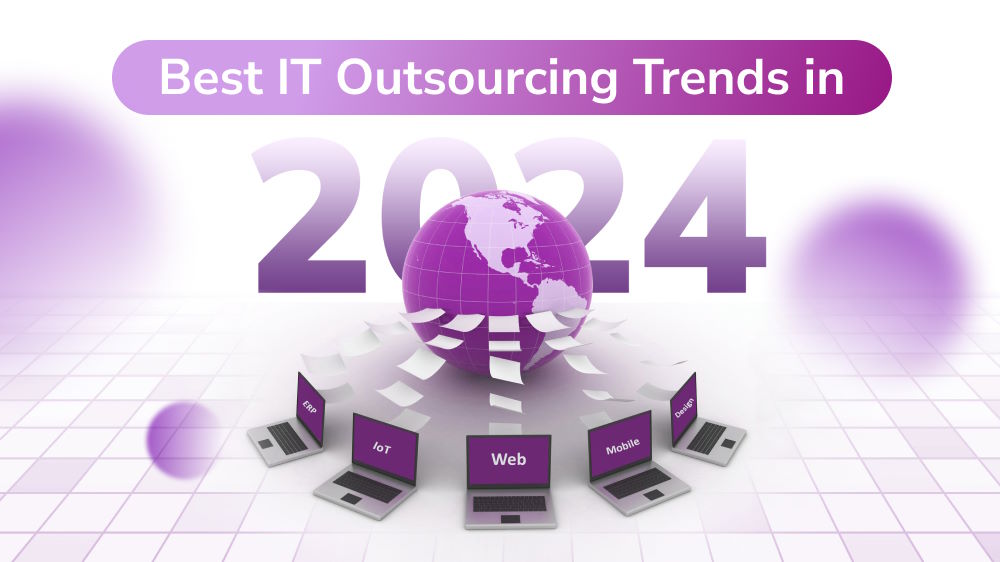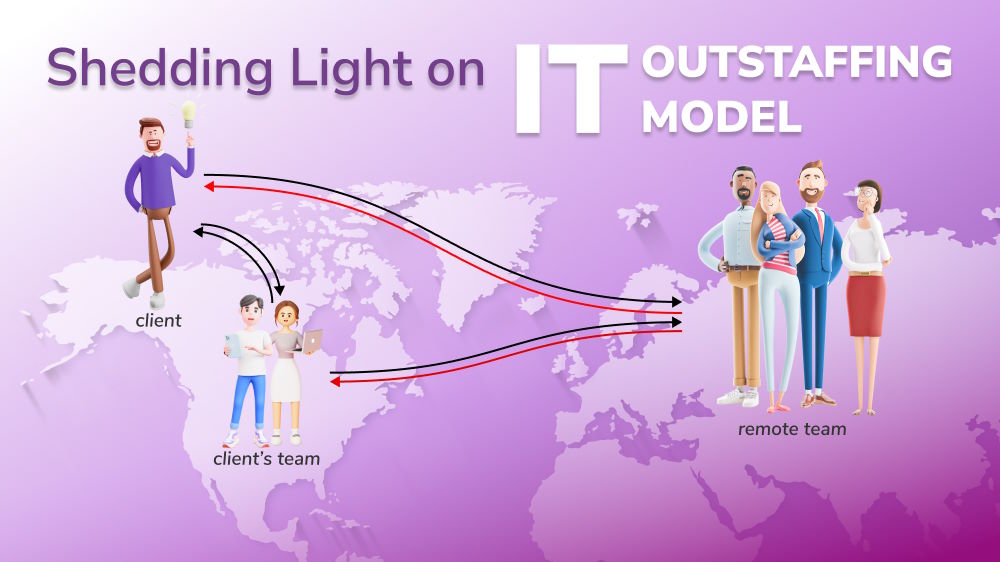10 Types of Custom Enterprise Software Development to Foster Business
As off-the-shelf software products are designed for public purposes only, they cannot satisfy all of your specific needs. Here, we provide 10 most popular types of custom software solutions to help you better get started with your self-development journey.

Content Map
More chaptersThe development of information technology has created favorable conditions for the development of software products. Instead of performing all operations manually as in the past, businesses today prefer to use software solutions to automate such processes.
There is no denying the benefits that software development applications bring to individuals and organizations. However, the problem here is that not many off-the-shelf enterprise products fully address the needs of the business when they are only for mass-scale purposes.
And here comes custom enterprise software development. By developing software products to serve the unique demands of a particular business or organization, an enterprise increases its workflow advantages in many ways. Not only mentioning the benefits, but the following article also helps you learn more about the ten most popular types of custom software solutions nowadays.
What Is Custom Enterprise Software Development?
Custom enterprise software development is the development process of software products/services specifically tailored to meet the needs of a particular organization. These unique business processes include many steps, from building, deploying, and designing to software testing and maintaining.
Businesses tend to embark on developing enterprise software when they cannot find existing software solutions in the market that meet their internal demand. Sometimes, instead of starting everything from scratch, a business can create custom enterprise software from an existing application to save time.
Since building custom enterprise software is more than a complicated process when it involves various programming languages, frameworks, and technologies depending on the specific requirements of the client, such application often requires the project manager to collaborate with an experienced development team, including developers, project managers, business analysts, and quality assurance specialists. In case there needs to be more personnel to cover the software project, the business may consider seeking the help of custom enterprise software development services to ensure operational efficiency.
When Will a Business Need Custom Software Solutions?
It cannot be denied that custom enterprise software solutions bring significant benefits to businesses in many aspects. However, the reason each company decides to create its own custom software instead of taking advantage of off-the-shelf software solutions can be varied on unique business requirements and challenges.
So, when will a business need a custom software solution? Below are some typical cases.
- When You Have Specific Business Requirements: Businesses may have problems and special needs during operational processes that packaged software cannot meet. A custom enterprise application can provide a tailored solution that meets the business needs.
- When the Necessity for Competitive Advantage Increases: Among many off-the-shelf products on the market with familiar features, businesses can create a competitive advantage and enhance brand recognition through integrated building custom software solutions that both combine advanced and comprehensive features.
- When Integration with Existing Systems Is a Must: When existing software solutions no longer meet business needs, custom enterprise software development can provide a solution that integrates seamlessly with existing systems instead of changing to completely new business solutions.
- When Scalability Is Important: Custom enterprise software solution can be designed to adapt to your business’s continued growth and expansion and avoid the limitations of off-the-shelf software solution that cannot handle the increased workload or user traffic.
- When Security and Compliance Play Essential Roles: Using existing software products means sharing confidential information about the business with third parties. Meanwhile, security features on custom enterprise solutions help enterprises proactively enforce compliance with data protection laws and regulations.
- When Cost-effectiveness Is Your Priority: While custom software development may initially require a larger investment than existing software systems, it can provide long-term cost savings by improving operational efficiency and reducing costs associated with manual processes.
10 Types of Enterprise Application Development
Custom enterprise software development can be categorized into various types depending on their functionality and purpose. Below are the common types of custom software development.

Content Management System (CMS)
Content Management System (CMS) is a software product that allows enterprises to create, publish and manage content, typically on websites or other digital platforms, without requiring coding or web development knowledge.
To facilitate content management and planning, CMS divides individuals in the organization into different rights with fixed repositories. For example, authors can only create content and save their work, editors have the right to modify and publish that content, and administrators have all rights on the CMS, even adding/removing other members’ functionality.
Besides the main function of text editing and posting with a user-friendly interface, this kind of enterprise application development also integrates other advanced features such as SEO optimization, data aggregation, and design customization tools to meet the digital presence needs of businesses of all sizes.
It is this decentralization and feature diversity that helps CMS easily streamline workflows and improve collaboration among teams. Popular CMS systems include WordPress, Drupal, and Joomla, among others.
Customer Relationship Management (CRM) Software
CRM systems are software products developed primarily for businesses that need to manage their customer interactions and relationships efficiently and systematically. Through the tasks of researching customer habits and collecting and storing information about target audiences, businesses have a clear basis for converting it into actionable insights and creating marketing campaigns that match the needs of customers and drive sales.
Regarding marketing, some CRM custom enterprise software development also comes with a feature to automate the marketing process and measure the effectiveness of the campaign based on reports and analytics collected from customer files. This not only helps businesses accelerate strategic decision-making but also helps them stay ahead of the curve in their industry.
Many CRM applications are available on the market, each with its own features and pricing plans, namely HubSpot, Zoho, SalesForce, etc.
Enterprise Resource Planning (ERP) Systems
ERP software is simply an enterprise resource planning system. The ERP system operates by allowing all personnel/departments in an organization to work on the same system (all-in-one) and the same data source instead of working on individual software and independent data as before.
By creating synchronization in all business data, the custom ERP system helps in-house development teams to work smoothly with each other, ensuring close linkage in the operational stages from purchasing management, production, and logistics to personnel management, finance, accounting, etc.
Some popular ERP software includes Odoo, NetSuite, Microsoft Dynamics 365, etc. However, because ERP is centralized when it comes to directly interfering with business operations, businesses should build their own custom ERP development applications instead of depending on all-ready-made ones.
Business Intelligence (BI) Software
Business intelligence solutions are tools and techniques that enable businesses to collect, analyze, and transform data into meaningful insights that inform decision-making rather than emotional assumptions.
In order to do this, BI software extracts data from various sources, including database development, spreadsheets, and cloud-based application development. Then it transforms them into analyzed formats that can easily provide insights into key metrics and performance indicators. Power BI, Tableau, and QuickSight are three widely used BI systems.
Supply Chain Management (SCM) Software
True to its name, the SCM application is a software solution that helps enterprises manage all aspects of the supply chain across the enterprise, from procurement and inventory management to logistics and transportation. By managing sourcing, businesses can cut excess costs and get products to consumers faster.
SCM software can be deployed on-premises or in the cloud and integrated with other software systems such as ERP (Enterprise Resource Planning) and CRM (Customer Relationship Management) systems. Some key features of this kind of software include demand planning, inventory management, supplier management, and logistics management. Based on popularity, we have SAP SCM, Oracle SCM, and Logility, the three most used SCM solutions nowadays.
Human Resource Management (HRM) Software
This is a tool that solves many of the troubles of the human resources department in the company. Instead of managing people-related processes and tasks completely manually like before, HRM software helps businesses automate and streamline HR tasks, such as payroll processing, benefits administration, employee scheduling, time and attendance tracking, and performance management, which is much faster and more efficient.
With the continuous development of information technology and the latest technologies, HRM is even more upgraded with other features such as employee self-service and performance management.
To better serve their internal HR needs, enterprises can ask enterprise software developers to build a custom HRM solution with special customization features. If not, you can check out names like PeopleStreme and monday.com.
Project and Workflow Management Tools
Project management tools are platforms designed to help organizations plan, track, assign, and manage tasks or do anything related to a project workflow and business processes. Using such software often begins with users creating projects and tasks and then assigning them defined deadlines for team members. It is then the responsibility of team members to update their progress so that managers can efficiently monitor timelines, bottlenecks, and productivity.
With Kanban boards, Gantt charts, or calendar views, which are already integrated into the platform, users can better visualize progress and evaluate the whole process without putting in much manual effort. The biggest advantage of this type of custom enterprise solution is that teams can collaborate with each other in real time at a centralized location, resulting in improved accountability and transparency.
Project and workflow management tools are not only widely used for tracking software development but are also popular in marketing campaigns and legal case management. Trello, Jira, Asana, and ClickUp are some of the common examples that you can take into consideration.
Financial Management Software
Budgeting is the cornerstone of every business process. With an effective financial strategy, organizations can better manage unnecessary costs and confidently progress toward their goals. Financial management software enables users to do exactly this.
Financial management tool is software that encompasses a range of features designed to help businesses efficiently handle their financial operations, including budgeting, forecasting, accounting, expense tracking, invoicing, and financial reporting. By using such a tool, financial teams automate repetitive tasks and reduce manual errors while ensuring compliance with tax regulations and accounting standards.
Some financial apps even have integration capabilities which support users to connect the app with their in-used banks and existing ERP software, ticketing systems, billing platforms, and database to better maintain cash flow visibility.
SAP S/4HANA Finance, Xero, Oracle NetSuite are some popular financial management software options suitable for businesses regardless of sizes. For individual users, we have Quicken, Mint, and Simplifi to name a few.
Customer Portals or Self-Service Platforms
Customer portals, or what we call self-service platforms, are secure, web-based software that enable users to find information, perform routine actions, manage their accounts, and resolve issues independently, without needing direct assistance from in-charge representatives.
As normal customer services provided by service providers cannot achieve 24/7 access for clients, a self-service platform is a great way to improve the user experience and satisfaction through convenience and speed while reducing the burden on in-house teams. Obviously, this type of enterprise software can only empower users to self-serve simple tasks that are already programmed. For more intricate tasks, users must still reach out to customer support teams for optimal guidance.
Examples of customer portal software include Zendesk Guide, Salesforce Experience Cloud, Zoho Desk, etc.
Learning Management Systems (LMS) or Training Portals
Instead of traditional training courses that necessitate employee direct attendance, modern companies nowadays have another way to deliver such sessions - online learning through learning management systems or training portals.
Learning management systems (LMS) or training portals are defined as centralized platforms used to plan, manage, and monitor online educational or training programs within an organization. By giving the administrators the right to create courses and assign learning paths to individuals, learners today can actively complete required lessons and quizzes and earn certificates or badges all from the comfort of their homes without having to come into the company.
Online training programs in LMS often have no form limitation, which they can be video, SCORM, live sessions, forums, and even gamification. Through dashboards and analytics integrated into the systems, companies and their employees can evaluate learner progress and evaluate the effective of provided courses.
This type of enterprise software plays an important role in onboarding, professional development, compliance training, and certification management and is commonly used in large and small organizations. If you are looking for an example of a training portal, you can make a reference to Moodle, TalentLMS, Docebo, and SAP Litmos.
Outsourcing Custom Enterprise Software Development for a Better Outcome
Regardless of enterprise software solutions, businesses need thorough research and investment in expertise when software development is more than a complicated process. To simplify the problem and ensure the product’s output quality meets the business’s requirements, it is a good idea to consider enlisting the help of an enterprise software development company. By outsourcing software development and approach to enterprise software development services, companies can free up in-house teams to focus on core business activities and let tech experts do their thing.







